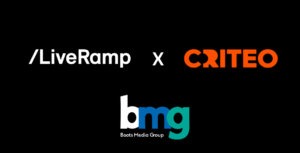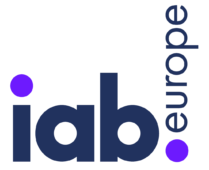Facebook & TubeMogul Align: Q&A with Mauricio Leon, Commercial Director, TubeMogul
by Lindsay Rowntree on 7th Apr 2016 in News

Growth in video advertising is gaining momentum, but one of the barriers has always been the lack of integration between video platforms, resulting in a cumbersome effort of running separate campaigns across multiple platforms to effectively reach target audiences. ExchangeWire speaks exclusively with Mauricio Leon (pictured below), commercial director, TubeMogul, about becoming an official Facebook marketing partner and what this step means for increased interoperability across the video industry.
ExchangeWire: On 31 March, it was announced that TubeMogul have become an official Facebook marketing partner. How will this partnership enable TubeMogul clients to access Facebook and Instagram video inventory?
TubeMogul have partnered with Facebook and Instagram and have become the first platform to provide brand advertisers a holistic way to plan, buy, and measure targeted social video advertising campaigns alongside other advertising channels from a single demand-side platform.
The partnership ensures that the same granular targeting from Facebook is available through TubeMogul, including first-party, demographic, location, interest-level, behavioural and purchase transaction information. It also allows marketers to retarget off open-exchange/direct deals into Facebook for sequential messaging or reach extension. Actual inventory is on the Facebook and Instagram news feeds on desktop and mobile (Phone & Tablet, App + Web).
Over 40 advertisers have already run more than 100 campaigns, including Playboy, Expedia, Lenovo, Starcom on behalf of Kraft, and Publicis Health Media on behalf of Athena Health.
What does the inclusion of Facebook and Instagram video inventory mean for advertisers' video strategy?
This partnership with Facebook is a huge step towards our goal of providing marketers a simple, accountable and automated access to every inventory source across all formats and devices from a single platform. Consolidated reporting allows advertisers to quickly evaluate the value being added from each media supplier against the set KPIs for each campaign. For us, its about realising the dream of cross-screen marketing.
Much like Facebook’s goal is to connect people and ideas, our goal is to connect advertisers with their target audience. Both our goals are getting harder, and both our companies are using technology to help achieve them.
If you’re a marketer, Facebook data is akin to winning the lottery. Self-identification always beats a machine’s best guess, and now marketers have a straight shot into that gold mine through our platform.
 Two examples of how our Facebook integration has been put into practice come to us from Expedia and Playboy. Expedia uploaded their existing TV plan to our cross-screen planning tool and used Facebook as a way to gain efficient, on-target incremental reach. This totally inverted the way that Facebook has traditionally been used: instead of a lower-funnel, direct-response play, Expedia are using Facebook as a reach/frequency vehicle to extend their TV buy.
Two examples of how our Facebook integration has been put into practice come to us from Expedia and Playboy. Expedia uploaded their existing TV plan to our cross-screen planning tool and used Facebook as a way to gain efficient, on-target incremental reach. This totally inverted the way that Facebook has traditionally been used: instead of a lower-funnel, direct-response play, Expedia are using Facebook as a reach/frequency vehicle to extend their TV buy.
Playboy are accessing Facebook in a much different, but equally interesting, way. They’re taking advantage of our ability to retarget users on Facebook and Instagram, and helping other marketers access Playboy’s audience in these channels. It’s a type of audience extension that was never possible before. As you can imagine, Playboy have an incredibly young and engaged audience – exactly the type who are increasingly tough to reach on TV. They are using our software to simultaneously provide value to themselves and other marketers.
Facebook recently announced the ability for publishers to place video ads into instant articles. Will this inventory be available to advertisers through TubeMogul?
Instant Article Ads aren’t currently part of the API integration, but TubeMogul can run them as a managed service through the Facebook platform. We are constantly updating and evaluating our product and foresee that this will change if the demand is there.
TubeMogul created quite a stir recently with the launch of the anti-Google campaign, in response to Google's walled garden approach. Does the partnership with Facebook, also known for its walled garden approach, signify a shift in interoperability from the big players?
There’s no Trojan Horse here. Facebook inherently understand the value of an open ecosystem and are taking steps to do what’s best for marketers. They get the value of technology to meet the demands of brand advertisers – look at Atlas and LiveRail. Facebook’s more open approach, and TubeMogul’s independence, align when considering the best interests of the advertiser.








Follow ExchangeWire